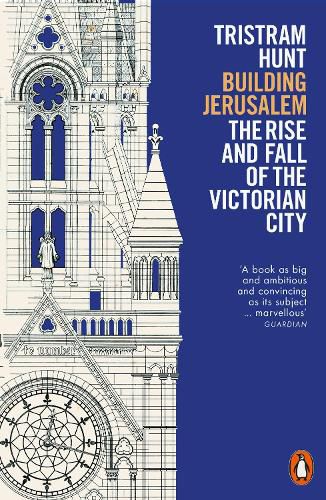Readings Newsletter
Become a Readings Member to make your shopping experience even easier.
Sign in or sign up for free!
You’re not far away from qualifying for FREE standard shipping within Australia
You’ve qualified for FREE standard shipping within Australia
The cart is loading…






The ideas and people who inspired and shaped the great Victorian cities, with all their energy, achievements and pride
This is a history of the ideas that shaped not only London, but Manchester, Glasgow, Liverpool, Leeds, Birmingham, Sheffield and other power-houses of 19th-century Britain. It charts the controversies and visions that fostered Britain’s greatest civic renaissance.
Tristram Hunt explores the horrors of the Victorian city, as seen by Dickens, Engels and Carlyle; the influence of the medieval Gothic ideal of faith, community and order espoused by Pugin and Ruskin; the pride in self-government, identified with the Saxons as opposed to the Normans; the identification with the city republics of the Italian renaissance - commerce, trade and patronage; the change from the civic to the municipal, and greater powers over health, education and housing; and finally at the end of the century, the retreat from the urban to the rural ideal, led by William Morris and the garden-city movement of Ebenezer Howard.
$9.00 standard shipping within Australia
FREE standard shipping within Australia for orders over $100.00
Express & International shipping calculated at checkout
The ideas and people who inspired and shaped the great Victorian cities, with all their energy, achievements and pride
This is a history of the ideas that shaped not only London, but Manchester, Glasgow, Liverpool, Leeds, Birmingham, Sheffield and other power-houses of 19th-century Britain. It charts the controversies and visions that fostered Britain’s greatest civic renaissance.
Tristram Hunt explores the horrors of the Victorian city, as seen by Dickens, Engels and Carlyle; the influence of the medieval Gothic ideal of faith, community and order espoused by Pugin and Ruskin; the pride in self-government, identified with the Saxons as opposed to the Normans; the identification with the city republics of the Italian renaissance - commerce, trade and patronage; the change from the civic to the municipal, and greater powers over health, education and housing; and finally at the end of the century, the retreat from the urban to the rural ideal, led by William Morris and the garden-city movement of Ebenezer Howard.